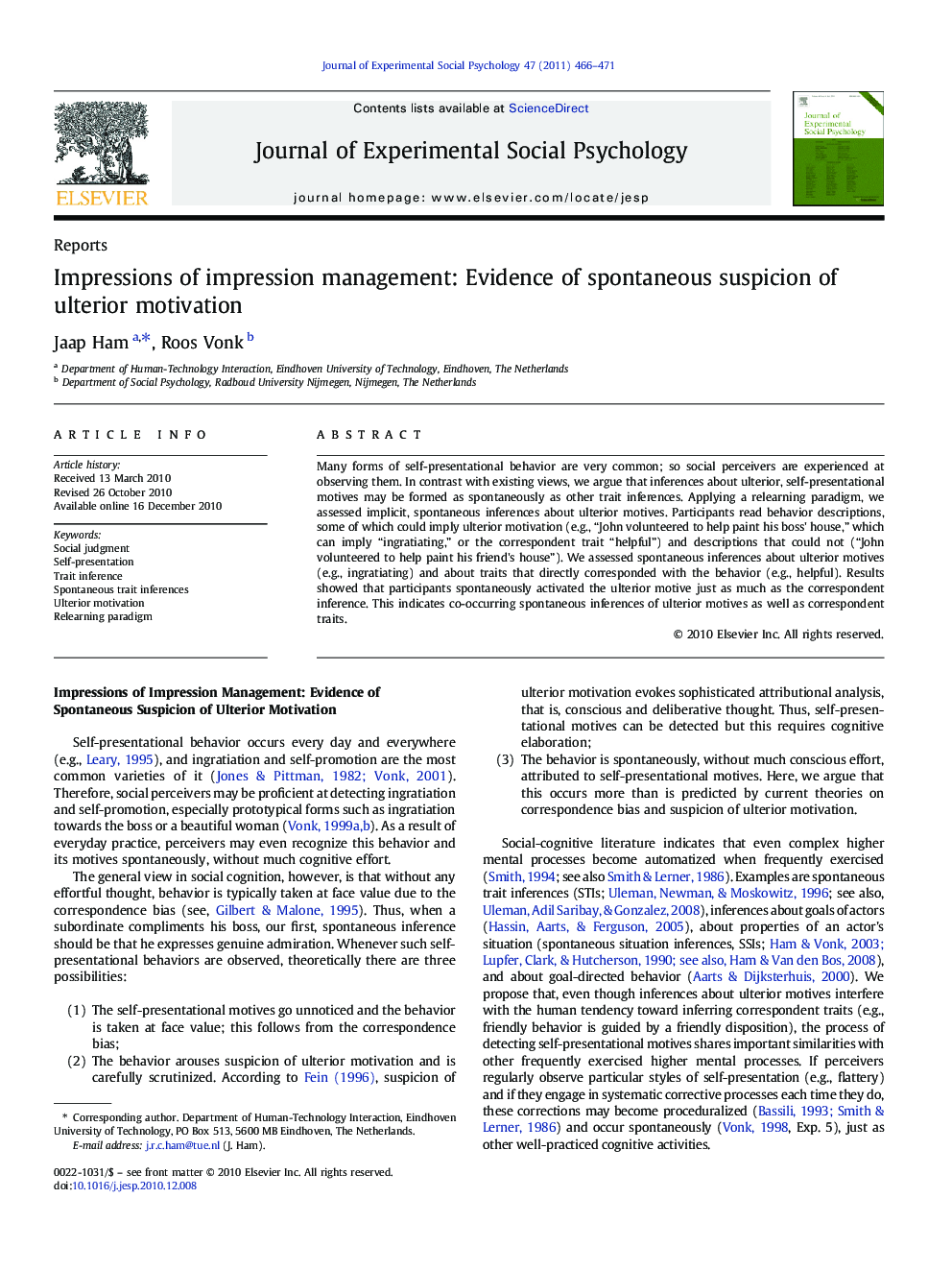| Article ID | Journal | Published Year | Pages | File Type |
|---|---|---|---|---|
| 10468669 | Journal of Experimental Social Psychology | 2011 | 6 Pages |
Abstract
Many forms of self-presentational behavior are very common; so social perceivers are experienced at observing them. In contrast with existing views, we argue that inferences about ulterior, self-presentational motives may be formed as spontaneously as other trait inferences. Applying a relearning paradigm, we assessed implicit, spontaneous inferences about ulterior motives. Participants read behavior descriptions, some of which could imply ulterior motivation (e.g., “John volunteered to help paint his boss' house,” which can imply “ingratiating,” or the correspondent trait “helpful”) and descriptions that could not (“John volunteered to help paint his friend's house”). We assessed spontaneous inferences about ulterior motives (e.g., ingratiating) and about traits that directly corresponded with the behavior (e.g., helpful). Results showed that participants spontaneously activated the ulterior motive just as much as the correspondent inference. This indicates co-occurring spontaneous inferences of ulterior motives as well as correspondent traits.
Related Topics
Life Sciences
Neuroscience
Behavioral Neuroscience
Authors
Jaap Ham, Roos Vonk,
